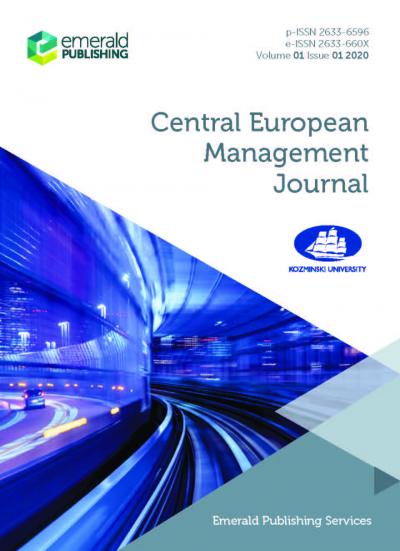Researching Capitalism In Poland: Economic Interests As A Cultural Construction
Witold Morawski
Kozminski University
2019 27 (1) Central European Management Journal
DOI 10.7206/jmba.ce.2450-7814.248








